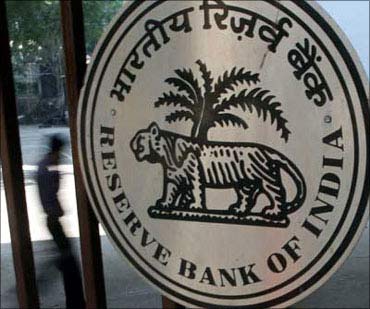B G Shirsat in Mumbai
Now that the Union Budget is in, a look at its sector-wise impact on the corporate sector, after checking with the views of brokerage firms:
AUTOMOBILES
The partial roll back (upwards) of excise duty by two per cent and increase of the ad valorem part of excise duty on large cars to 22 per cent is a negative step for companies across the auto sector.
The increase in excise duty could impact volumes in case they pass off the increase or can impact profitability if they absorb the hike in excise duty, indicate auto analysts. Maruti has already announced a rise in selling prices across models with immediate effect.
The estimated rise in prices ranges from Rs 600-1,500 for two-wheelers toRs 5,000-50,000 for large cars and Rs 4,500-50,000 for commercial vehicles.
The auto analyst at ICICI Securities indicates that change in the income tax slab would increase the disposable income in the hands of people and create demand for the auto sector.
. . .
Budget to have a mixed impact on corporate sector
BANKS AND FINANCIALS
The overall Budget impact is positive. Extension in the date of the agriculture loan waiver by six months could mean lower formation of non-performing assets, as farmers pay up, a positive for public sector banks.
The proposal to give additional banking licences to private-sector players may benefit IDFC and Reliance Capital.
The proposal to infuse Rs 16,500 crore (Rs 165 billion) in 2010-11 to shore-up tier-I capital is expected to benefit Dena Bank, Vijaya Bank and UCO Bank. State Bank of India, which has been contemplating a rights issue, should also benefit.
An extension of the repayment due date to June 2010 on large farmer loans under agriculture debt waiver, where 25 per cent was payable by the farmer, is likely to benefit large PSU banks like SBI, Punjab National Bank and Bank of Baroda, that had recognised a large amount of NPAs on this account in the third quarter, which would now get reversed.
Granting new banking licences to private players and non-banking finance companies could increase the level of competition, indicate analysts at Angel Broking.
However, chances of acquisition of smaller banks like IndusInd Bank, YES Bank and Federal Bank could go up.
On potential NBFC recipients, it is unlikely that any companies that are part of industrial groups will be given licences, a principle observed across major economies.
Budget to have a mixed impact on corporate sector
CEMENT
Increase in the customs duty on diesel and petrol and central excise duty on petrol and diesel by Re 1 a litre is likely to increase freight rates and adversely impact overall margins of cement companies.
The increase in excise duty on cement is likely to have an impact of Rs 3 per bag for cement sold below Rs 190 and a minimum Rs 3.75 for cement sold above Rs 190, indicate analysta at Angel Broking.
All companies, except southern ones such as India Cements and Madras Cements, are expected to pass on the rise.
Budget to have a mixed impact on corporate sector
ENGINEERING
Project import status to monorail projects for urban transport at a basic duty of five per cent should bring down the overall cost, giving a fillip to the viability of monorail projects in other cities.
A likely beneficiary is Larsen & Toubro.
The increase in planned capex on defence is positive for Bharat Electronics, as a higher allocation should translate into an increase in its order book.
Budget to have a mixed impact on corporate sector
FERTILISERS
A new nutrient-based subsidy policy is expected to lead to greater agricultural productivity, as the policy would allow complex fertiliser players to determine their selling price.
Companies would now be able to compete on the basis of their cost efficiency, brand equity and distribution network.
The subsidy calculation would be less complicated, helping companies to determine their arrears accurately and reduce working capital requirements.
Budget to have a mixed impact on corporate sector
METALS
The cess on domestic and imported coal to build the corpus of a national clean energy fund will further push up domestic coal prices.
The excise duty hike, which implies a price hike of Rs 600 a tonne, can be easily pushed through to customers.
Steel Authority of India Ltd has already announced long-product price increases of Rs 1,000 a tonne from March 10.
Budget to have a mixed impact on corporate sector
OIL AND GAS
The restoration of basic customs duty of five per cent on crude petroleum and 7.5 per cent for petrol and diesel is negative for oil marketing companies.
They would not have to pay more duty, while the price at which they can sell remains capped.
However, this is positive for Oil and Natural Gas Corporation and Oil India, as they benchmark the crude oil they produce to import parity prices.
The rise in Minimum Alternate Tax from 15 per cent to 18 per cent is negative for Reliance Industries and Cairn India.
Budget to have a mixed impact on corporate sector
POWER
Power utilities covered under the regulated return model as prescribed by the Central Electricity Regulatory Council are allowed to pass through the MAT.
Hence, while tax payment will go up due to increase in MAT, there will not be an impact on the profits of Power Grid Corporation, NHPC and NTPC.
Power utilities not covered under the regulated return criteria and awarded under the rate-based bidding model could be impacted to the extent of increase in MAT.
However, there is a 'Change in law' clause embedded in the price purchase agreement which may get triggered, allowing these utilities to adjust rates upwards.
The Ultra Mega Power Projects of Tata Power and Reliance Power could, thus, be protected. However, utilities operating as merchant power capacity will see an increase in tax incidence.
This will pull down their internal rate of return. New power projects under the Income Tax Act qualify for infrastructure benefit and are, thus, liable to pay only MAT.
Budget to have a mixed impact on corporate sector
PHARMACEUTICALS
The increase in weighted deduction on 'in-house' research and development from 150 per cent to 200 per cent is positive for the entire sector, as it would increase expenditure on R&D as well as accelerate the growth momentum of Indian companies.
Sun Pharma, Lupin, Dr Reddy's and Ranbaxy would be key beneficiaries.











article